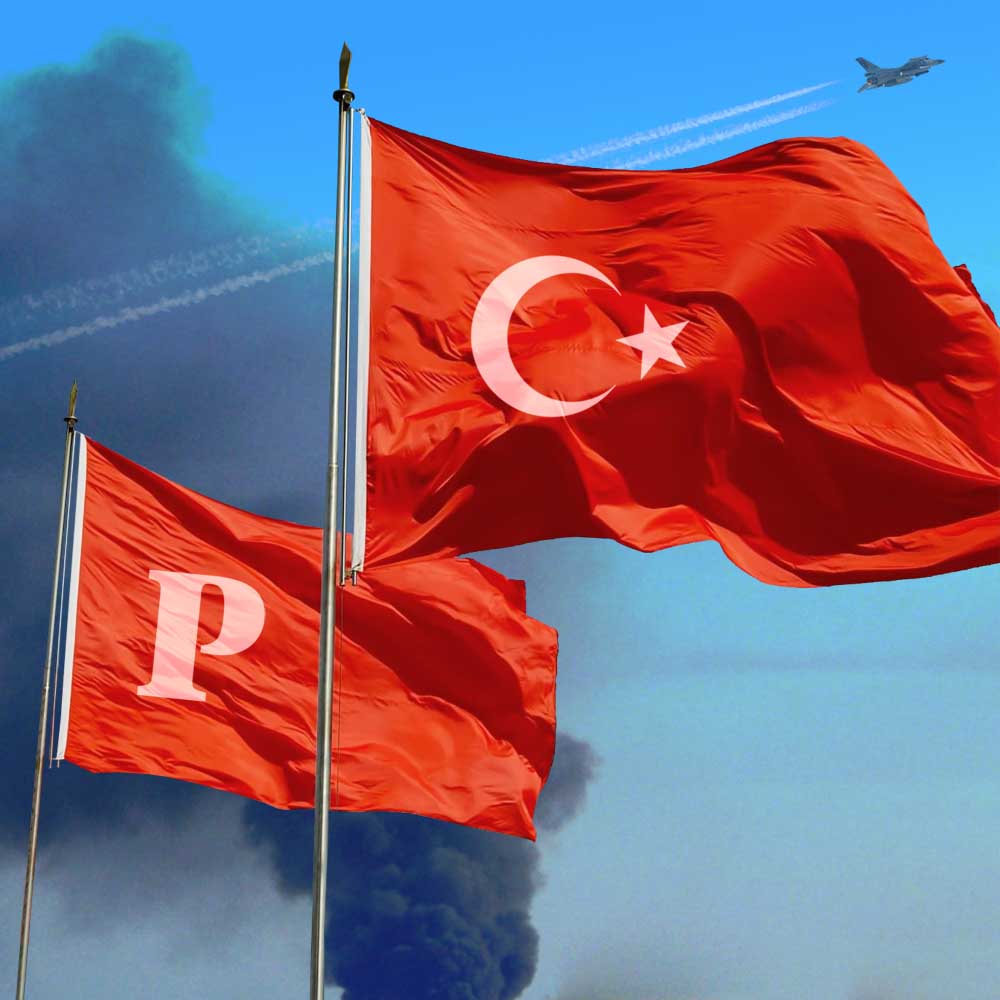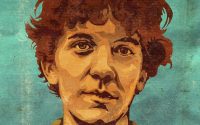Right of reply to the Turkish propaganda published by Jornal Público~ 5 min

This text was written by Rok Brossa, an internationalist volunteer present in Rojava. As someone directly affected by the contents of a publication, he claims the right of reply granted by law. The 30 day time limit to exercise it has been respected, since the text was sent on November 10. Absent any answer by Jornal Público, we have agreed to publish Rok’s reply to the Communications Director of the Presidency of the Turkish Republic.
By Rok Brossa
On October 10, one of the main Portuguese newspapers, Jornal Público, published a chronicle by the Communications Director of the Presidency of the Republic of Turkey, Fahrettin Altun. In it, the director explains why “The world must support Turkey’s plan for northeastern Syria”.
Among the many absurdities espoused by said chronicle, the director states that “Turkey has no ambition in northeastern Syria, except to neutralize a longstanding threat against Turkish citizens and to liberate the local population from armed bandits.” following up with a number of false accusations which I intend to answer.
The Democratic Federation of Northern Syria (DFNS) is made up of peoples from various ethnic groups – Kurds, Assyrians, Turkmens, Chechens, Arabs, among others – who are currently under attack by the Turkish army and Jihadist militias, also known as as Free Syrian Army. These include, for example, al-Qaeda or ISIS militias. This operation was named “Peace Spring”.
Erdogan’s personal war seeks not only to clean up ethnic areas in northeastern Syria, but also to end the revolutionary project that the peoples of the region have put into practice, based on direct democracy, ecologism and the liberation of women.
The role reversal that Altun is employing in order to explain the war in Syria means only to provide cover for a genocidal war that no one desires – except the AKP regime and its MHP partners, Turkish nationalists who also provide military support via their paramilitary arm, the Gray Wolves. Since the beginning of the war in Syria, Turkey has always been a central element in providing logistical and technical support to various jihadist bands. It also allowed these same gangs to freely cross their borders, receive hospital treatment in Turkey and was the main buyer of Islamic State’s oil.
Since this new stage of the genocidal war against the Kurdish people began, the Turkish army and its jihadist bands have killed more than 300 civilians and at least 600 are injured. More than 300 000 people have been forced to flee the war, over 5000 teachers became unemployed and at least 85 000 children have been forced out of school. There is already extensive documentation of war crimes committed by the Turkish army, such as the use of prohibited chemical weapons [white phosphorus] and the bombing of areas essential to the survival of the population. These include Alok Water Station, which provided water to over half a million people.
Internally, this war has also caused casualties. Hundreds of people have been arrested for making anti-war comments. Erdogan also took the opportunity to further increase the level of militarization in Bakur (in southeastern Turkey). Dozens of pro-Kurdish political representatives are being arrested and barred from holding the positions for which they were legally elected.
War crimes, recorded in photos and videos taken by the jihadist fighters themselves, exemplify the sadism and patriarchal mentality of those who participate in this process of ethnic cleansing. Two cases in particular shocked the world, given the brutality of the events. One was the assassination of Hevrin Khalef, a Kurdish politician and a reference among Syrian women. A tireless defender of women’s rights and a recognized peace activist. She was ambushed, tortured, and her vehicle was machine-gunned with dozens of bullets. The second case was that of YPJ fighter Amara Rênas, captured by pro-Turkish militias, who mutilated her body.
At a certain point in his text, Fahrettin Altun states that “Turkey will draw on its previous experiences in northern Syria to keep the zone stable.” It is yet another failed attempt to generate some sort of legitimacy or acceptance of a genocidal war. 600 days after the Turkish-controlled militias of Salafist ideology seized Afrin, in the ruins of the city now ruled over by the jihadists, there are no longer any signs of life. This was a city which had been untouched by war until the occupation by the Turkish regime. A shelter and safe harbor for thousands of people who had fled from other war spots in Syria.
With the territorial defeat of ISIS, the world looked forward to what might be a glimpse of the end of a war which has claimed far too many lives, sparked a wave of millions of refugees and the loss of humanity’s cultural and social heritage. At a time when political dialogues for a peace solution could be launched, Turkey, once again dissatisfied with its current results and fearing how they might ruin the neo-Ottoman horizon that Erdogan intends to create, has destabilized the region and a revolutionary project that provides a lasting peace solution for the area in particular and for the Middle East in general.
For all of these reasons and many more that we could mention, we should condemn the publication of this text by Jornal Público, as well as the Communications Director for the way he tried to legitimize genocide and ethnic cleansing. At this moment it is necessary for the world to stand in solidarity with the revolutionary project built by the Democratic Federation of Northern Syria. More than ever, internationalist solidarity must be exercised and we need to demand that both public organizations and states condemn Turkey’s invasion of Rojava and demand an immediate end to all military aggression.


